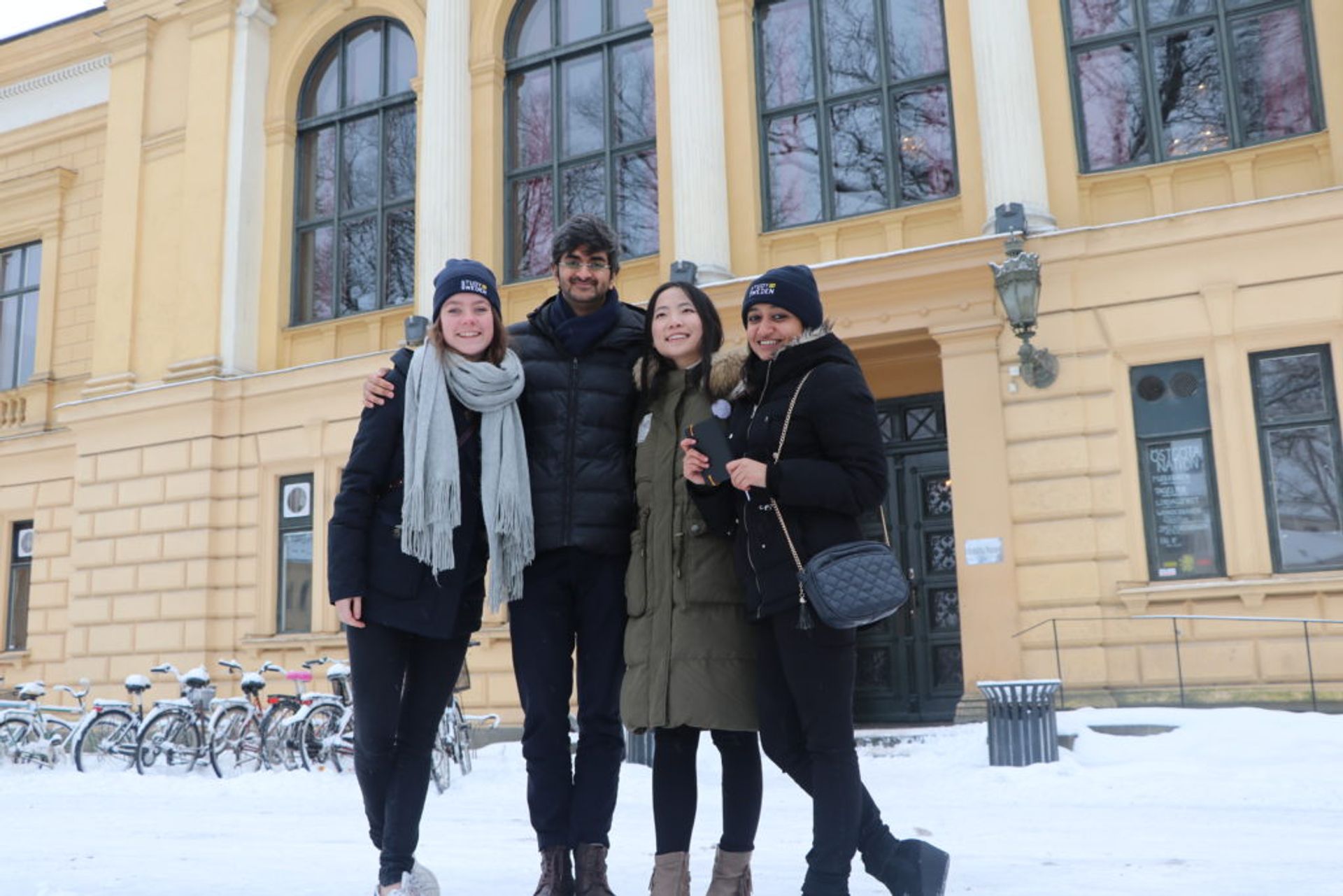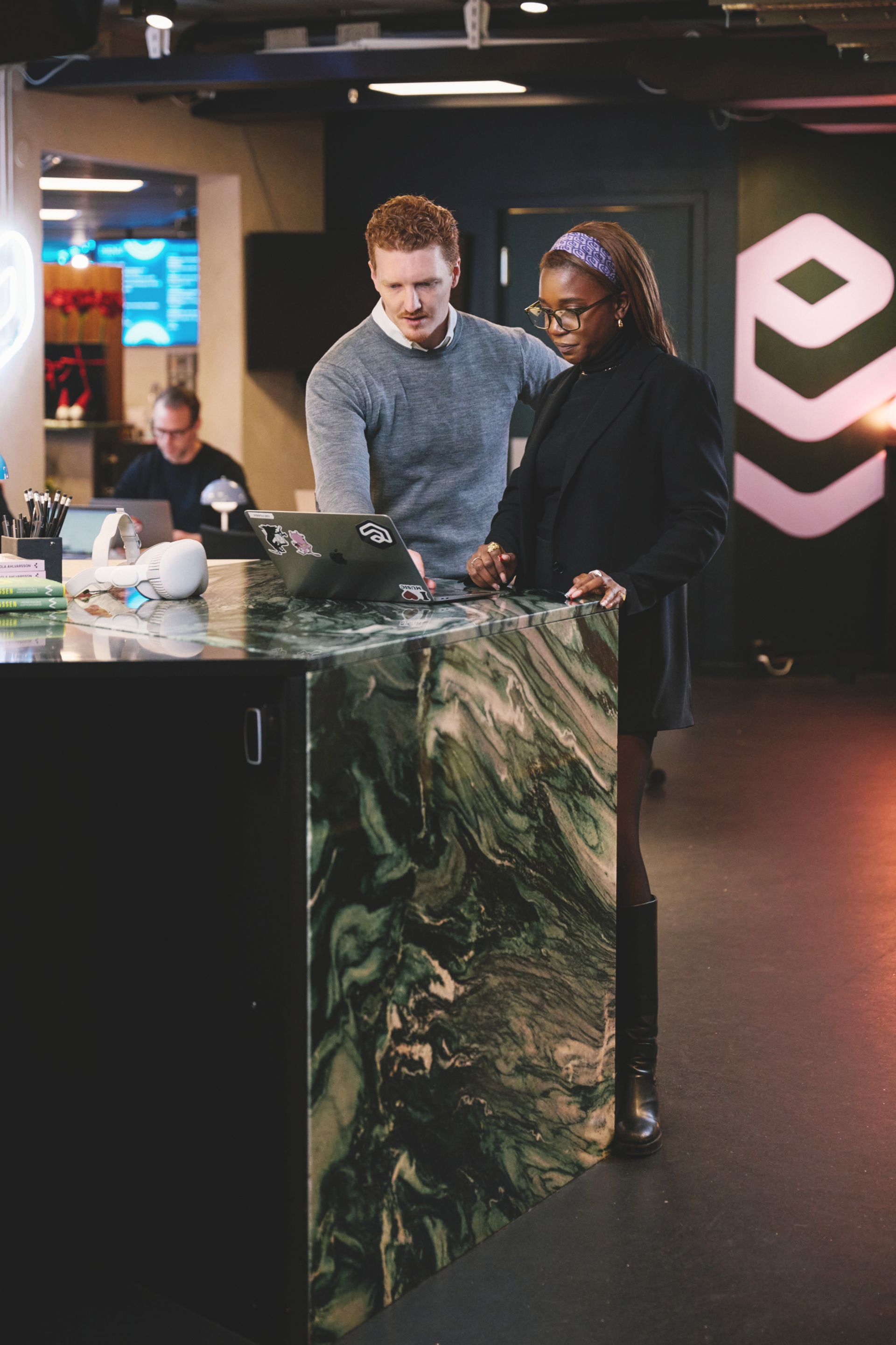
Written by Inez
23 Mar 2018
It’s Friday, which means it’s time for the first blogpost of the ‘Work After Study: The Series’! This post will be focused on the first step in finding work in Sweden: the application process. To make sure that we have some really good insights for you, we actually talked to an expert and asked him to share his experiences with working in Sweden. So, let’s see what we got to know about the application process!

Let’s introduce our expert first. Meet Raghu, who came to Sweden in 2014 to study a Master’s Degree in General Management at Stockholm School of Economics. And if he seems familiar, that makes sense! He is one of the past Study in Sweden digital ambassadors! Before coming to Sweden, Raghu worked in a cement factory in India, having done a studies in Chemical Engineering. He now works at Ericsson as an internal management consultant, where they work on a bunch of super interesting projects.
The reason for coming to Sweden to study Management after having done Chemical Engineering? When Raghu was working, and also while studying, he realised engineering wasn’t his passion. However, working in the factory was a great learning experience. He knew he wanted to get into management, so he was always looking at the managerial aspects while he was working there. What decisions are made, how strategy goes into execution. After that, he decided he wanted to study management.
When do I start with the application process?
It’s good to start early, especially when you’re an international student. And with early, I mean really early. What time exactly depends on the company you want to work for, and what type of job you’re after. Generally, I would say you start in August or September, so almost 10 months before you graduate. Larger, multinational companies like H&M and Ericsson take a long time before they offer jobs because their application process is quite extensive.
Here in Sweden, the selection of potential employees is not very CV driven. You do not get a job simply because you went to a good school and got good grades. You have to have a story, where you see yourself going in the future and that has to fit with the company. Finding a fit is like dating, as Raghu explained. The company is trying to get to know you, and you are trying to get to know the company.
Another reason why you should start applying early is because you need to understand what works for you. You need to get to know the job market and make sense of it. It’s not likely you’re gonna get the first job you apply for, that is simply not how the process works. You have to adapt to the market, understand what the different companies require in terms of skills, but also in personality. Go to different event, be engaged, look at how you can improve, what is working and what is not working. Have a curious, positive and engaged way of finding a job, not the stressful way of looking at finding a job.
Take away: Start early. Really early.

What does the application process entail?
It tends to be quite straight forward. First, you submit your cover letter and your CV. Some companies might ask for your university grades as well. You’ll usually get a reply in one or two weeks, but this depends. Next step could be online tests, like math or conceptual thinking. Some companies will ask you to do this, others won’t. Interviews are usually the next step. In some situations you will have one or two interviews, in other situations you might have six. Again, this depends heavily on the job you are applying for and at which company. These interviews are usually both focused on your personal development and competencies, and on case questions.
Take away: It’s quite straight forward, but the length of the process depends on the company your applying.
How do I stand out?
According to Raghu, the best thing you can do is to be authentic. In the long run, this will help you so much. Building on this authenticity, you have to have a story that is appealing. You have come all the way from another country, why? What have you learned from this move? Has it made you brave? Independent? Don’t try to give the right, expected answer. Make it interesting. Don’t be superficial, but yourself out there. Those people really stand out. All this is really valued by companies here in Sweden.
Take away: Be authentic and genuine.

How important is networking? Is it difficult?
Networking is very, very important. Companies really look for a fit with the company culture, so having someone who can be by your side and vouch for you, is extremely valuable. Raghu: ‘In terms of my experience, I went to networking events and tried to improve my skills every time. See what’s working, and what is not. For example, I would try and make a short pitch about myself. My first goal would be to pitch to one person. Just to keep it simple, since it can be pretty nerve-racking to do. Then, slowly, you become more comfortable with networking and you become better at it. The job that I landed, was actually through such an event. After I talked to them, they actually contacted me to apply for the position.’
Another way of networking, which might be a little easier for some, is simply reaching out to someone via LinkedIn or email, and express your genuine interest. In general, Swedes are super excited to talk about their work experience and share what the company culture is like at the place they’re working. Invite them for fika and you might just end up in a super relaxed and interesting conversation, while expanding your network.
Take away: Networking can really be the key to finding a job in Sweden.
Is an internship beneficial for finding a job?
Yes, for sure. First of all, you might actually get a job offered at the company you’re doing your internship at. It’s a great situation for the company too, because they got to know you a little to see if you fit in with their culture and whether you do a good job. However, even if you don’t get a job offered at the same company, you’re still able to show that you have work experience and that the company believed in you, since they gave you the internship. A summer job is also an option. Some universities offer them, as well as a number of companies. Those jobs provide you with additional work experience, you get the opportunity to expand your network and you might even receive a recommendation from it.






